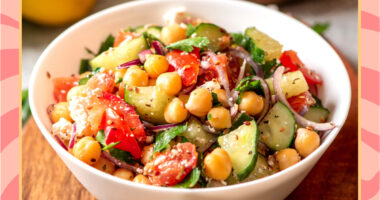Many people are still afraid to eat carbohydrates because of what they’ve been told in recent years. Things like the Atkins Diet and the Keto Diet have led people to believe that avoiding carbs is the only way you can lose weight or live a healthy life.
But carbohydrates are crucial for your health and unless you have a specific health complication that says otherwise, should be consumed regularly. It’s important to remember, however, that not all carbs are created equal. To learn more about which carbs are healthiest and which ones you can steer clear of, we talked with a few expert dietitians.
Continue reading to learn more about the best carbs you can eat, and for more healthy eating tips check out 6 Best Eating Habits to Reduce Inflammation as You Age.
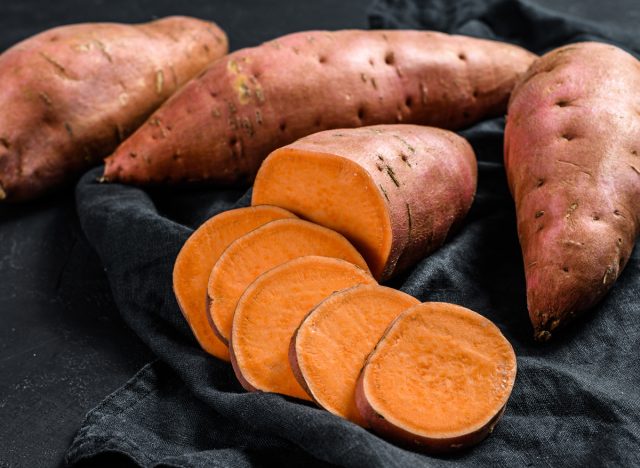

Sweet potatoes are a healthy carb that can provide plenty of benefits and can be a nutritious addition to your daily diet.
“Eating sweet potatoes regularly is a great addition to a balanced diet when you are trying to make healthy food choices. A plain medium sweet potato has around 103 calories, and four of its 20 grams of carbohydrate per serving come from fiber, a nutrient that keeps you satisfied and aids in proper gastrointestinal health. Its bright orange color indicates a high amount of beta-carotene, which is essential for eye health,” says registered dietitian Carrie Gabriel MS, RDN.
Curious about how to add these orange potatoes to your diet? Gabriel says, “sweet potatoes are also easy to load with other foods like black beans and salsa or ground turkey, spinach, and a little olive oil, or you can slice them up and roast them or throw them in the air fryer with some seasonings for a healthier version of French fries.”
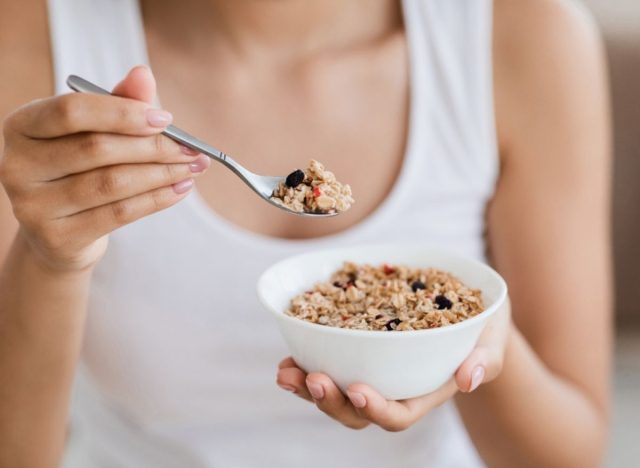

Oats are some of the healthiest carbs you can consume because of their high fiber content.
“Oats are a carbohydrate I consume regularly because they are so versatile. Oatmeal has soluble and insoluble fiber to aid in digestion and has been proven to have anti-diabetes and cholesterol-lowering properties. It is great to cook oats traditionally on the stove. However nowadays, making overnight oats with a variety of fruits and nuts, or baking your oatmeal into squares or muffins in the oven, cutting it into pieces, and serving it with a scoop of Greek yogurt is also a popular way to consume this satisfying complex carbohydrate,” says Gabriel.
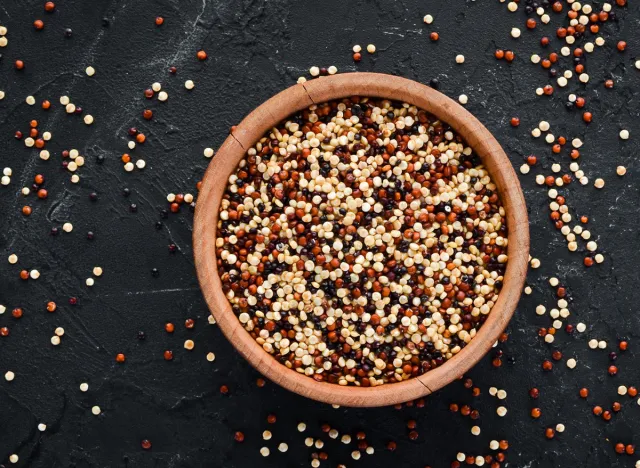

People often choose quinoa as an alternative to rice, which can provide you with plenty of helpful fiber.
READ RELATED: Experts warn of imminent arrival of Disease X as “pandemic era” begins
“Quinoa is a source of carbohydrate that is healthy to consume on a regular basis. Not only does it contain fiber, but it is also a source of protein to help you stay full and meet your daily requirement,” says registered dietitian Jinan Banna, PhD, RD.
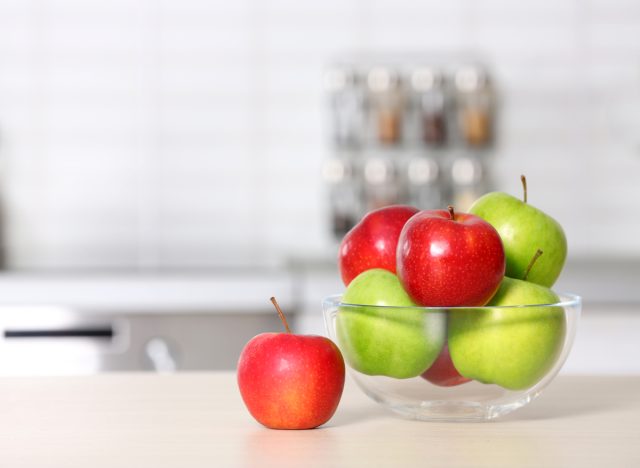

Fruit is a great way to get your daily servings of carbs in, and their natural sweetness can help curb sugar cravings as well.
“Apples are also rich in soluble fibers with prebiotic benefits. Pectin is one such example, and it provides the necessary nourishment needed to support the production of short-chain fatty acids (SCFAs) to fuel our gut microbiome. Plant-based sources like beans, legumes, nuts, and seeds are also rich in these soluble fibers,” says registered dietitian Rachel Fine, RDN and owner of To The Pointe Nutrition.
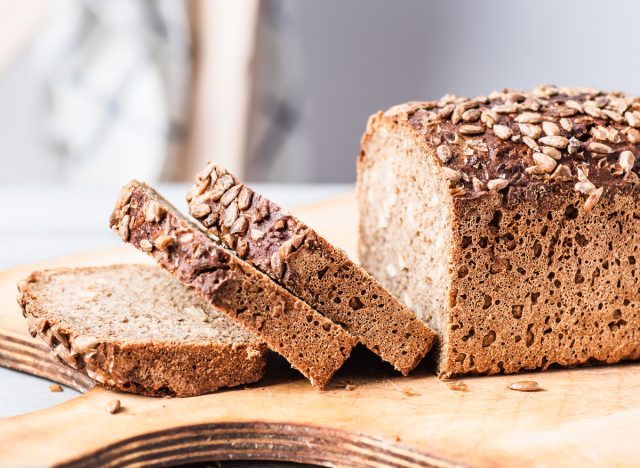

While many people are afraid to eat bread, there is no reason to fear a whole grain or whole wheat bread because it contains plenty of helpful nutrients.
“Whole grains (like quinoa, brown rice, and whole-wheat bread) contain fiber, vitamins and minerals that help keep you fuller longer. They also provide satiety after a meal or snack so you’re less likely to overeat,” says registered dietitian Janet Coleman, RD with The Consumer Mag.
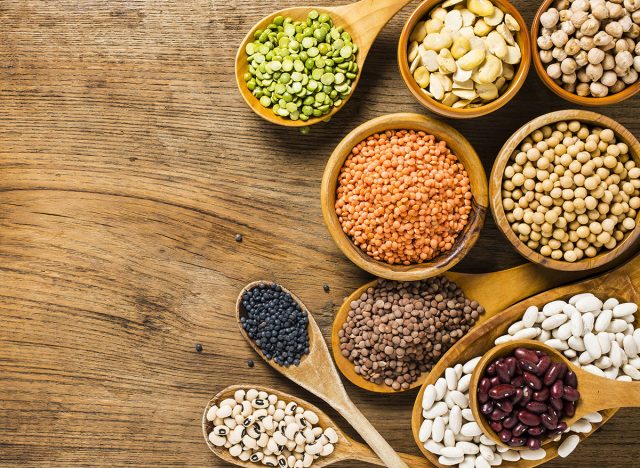

Although many people might not think of them as a carb, legumes and beans are a healthy carbohydrate source.
“Legumes such as beans, lentils, chickpeas are starchy but also an excellent source of plant protein and fiber. Many studies have found that including them regularly can help with heart health, blood pressure, decreasing risk for cancer, and weight management,” says registered dietitian Vandana Sheth, RDN, CDCES, FAND.
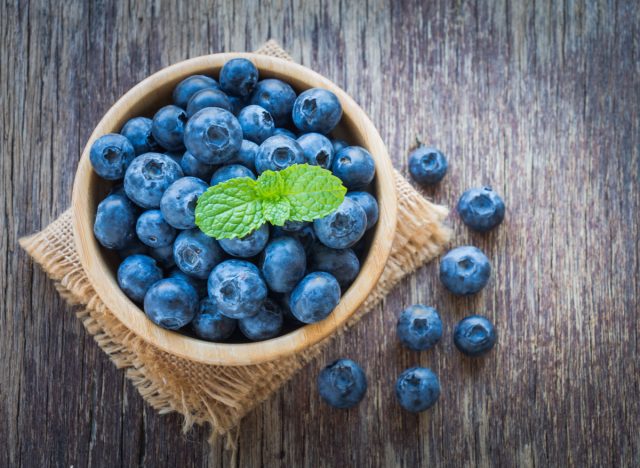

Adding berries to your daily diet is a delicious way to ensure you’re getting the proper nutrients your body needs on a daily basis.
“Berries are delicious, high in fiber, and rich in vitamins, minerals, and antioxidants. They are a perfect sweet treat as is or added to a meal,” says Sheth.
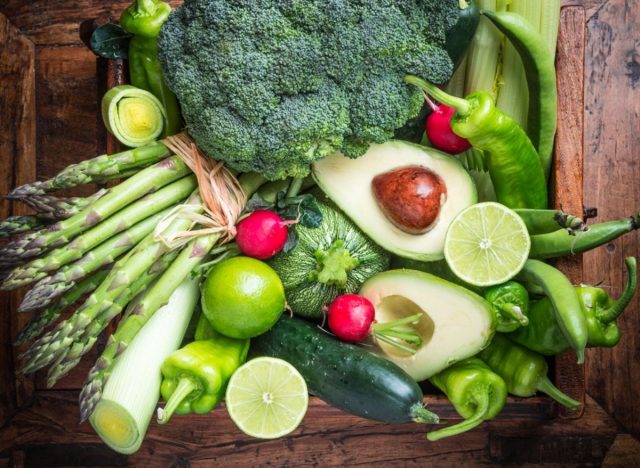

And lastly, don’t forget about your veggies. These healthy carbs are crucial for your health and should be consumed regularly.
“Vegetables are a great source of vitamins A and K, as well as potassium. They’re also low in calories, which is good news if you’re trying to lose weight,” says Coleman.
Source:





